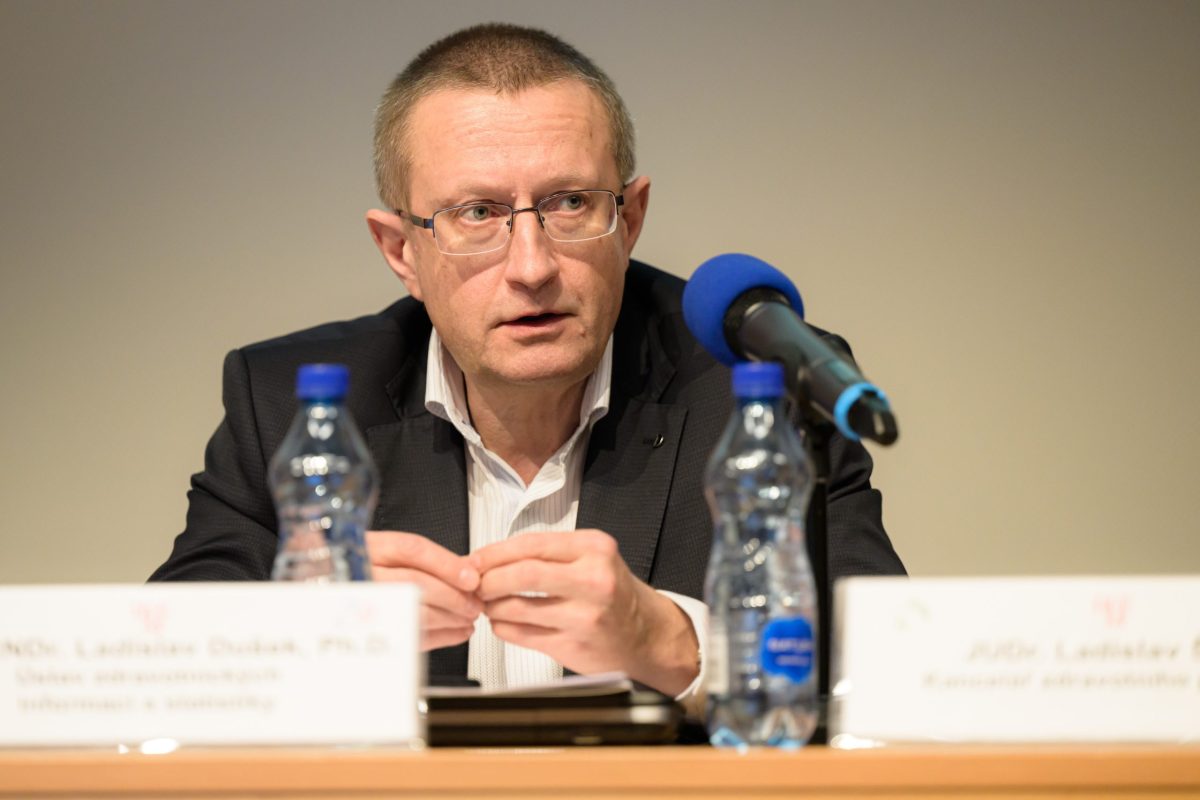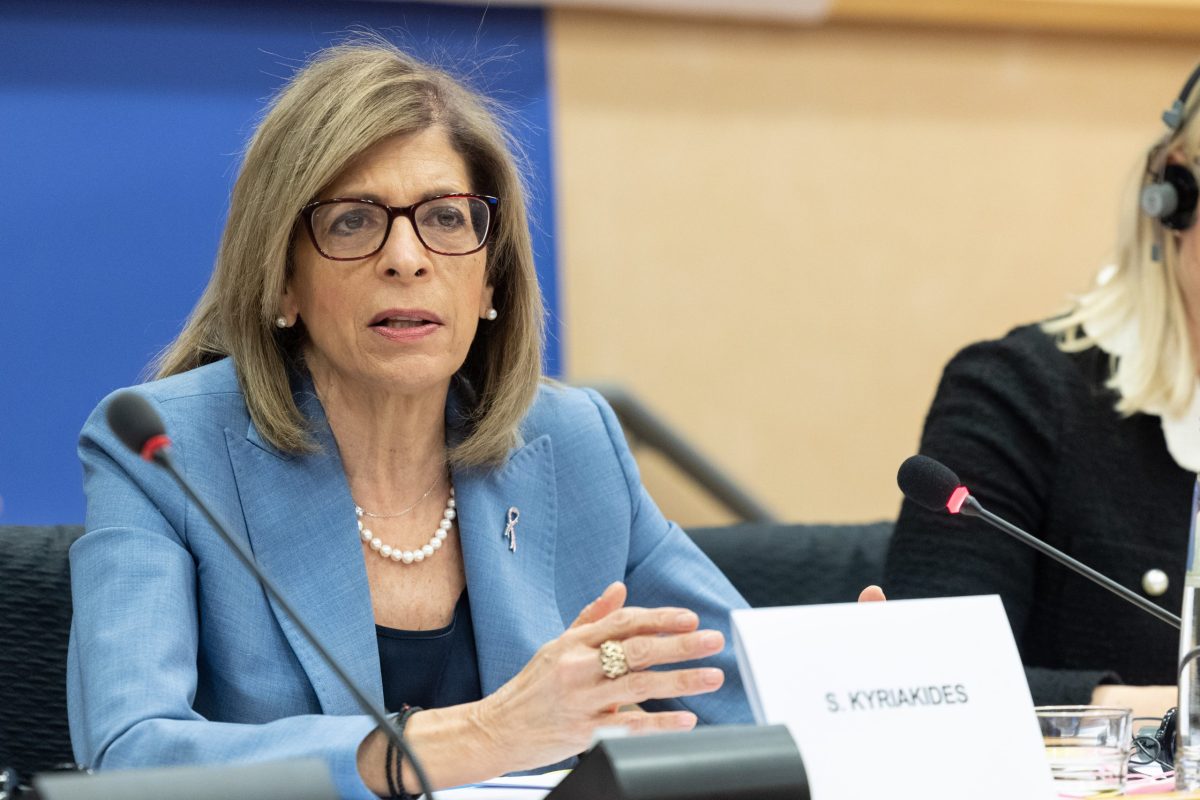As a result of the COVID-19 pandemic, we have irretrievably lost the several years of life expectancy „earned“ in the pre-pandemic years and these need to be regained. We need to fundamentally change our approach to health policy and search for other ways of financing it, said Andrzej Mariusz Fal, President of the Polish Professional Society for Public Health, at 2nd Annual International Panel of the Permanent Conference on Healthcare. If we enforce policies that reduce the risks of smoking now, there will be a significant reduction in cancer in fifteen to twenty years, Fal points out.
We are losing years of life expectancy and not gaining new ones. We need to start working hard to get back to pre-COVID-19 pandemic levels, or we will not even be stagnant, but returning to the past. We need to look for new approaches to public health promotion and funding mechanisms. This above is according to Andrzej Mariusz Fal, President of the Polish Society for Public Health and experienced head of the Allergy, Pulmonary Diseases and Internal Medicine Clinic at the Central Clinical Hospital in Warsaw.
Speaking at the 2nd Annual International Panel of the Permanent Conference on Healthcare, he highlighted a not well-known consequence of the COVID-19 pandemic, namely the unprecedented loss of one full year of life expectancy that took place between 2019 and 2020. One year in the case of the Czech Republic. In the case of Poland, the figure is three-tenths higher, in the case of the USA, by as much as 1.6 years.

„We had become accustomed to the fact that our life expectancy is gradually increasing. And then came the pandemic,“ Fal says, adding that according to an analysis by the Organization for Economic Cooperation and Development (OECD), in the first year of the pandemic, countries like the Czech Republic and Poland lost the health „gains“ from the ten years preceding the pandemic. „We need to work hard again to pay off this post-pandemic health debt of ours,“ he says.
Moreover, this is happening in a society where chronic diseases remain the biggest killer despite the sad statistics of deaths due to COVID-19. Fal points out that in this context, the World Health Organization (WHO) is even thinking of modifying one of the United Nations Sustainable Development Goals, specifically Goal 3.4. According to this goal, by 2030, with the help of prevention, premature mortality from this type of diseases should be reduced by a third. „The WHO is considering pushing back the target date to 2035 or even 2040,“ explains Fal.

State investment in the fight against drinking and smoking brings financial savings to national budgets
Chronic diseases account for ninety percent of premature deaths. „Investing in their prevention is thus much more cost-effective than treatment,“ says Fal, again referring to WHO data. It calculated that, for example, one dollar invested in smoking prevention means saving $7.43, and in the case of salt, or healthier eating, it is one dollar versus $12.80. Similarly, he calculates the „earning potential“ of preventing other bad habits that cause chronic diseases, such as alcohol (1 in $9.13 dollars) or lack of exercise (1 in $2.80 dollars). „Prevention can thus be seen as an area that can bring big gains to the system,“ Fal is convinced.
According to him, politicians too often mainly perceive the direct costs of treating chronic diseases and are not used to considering the indirect costs that arise, for example, because a person is sick and does not work. From this perspective, in the US, for example, cancer costs the national economy $900 billion a year. „Chronic diseases mainly develop in people over 50 because they take “work” to develop. Drinking alcohol, smoking….the older people get, the more they diseases they have. Older people are therefore more expensive to treat. And the population as a whole is aging. Everyone who is healthy and working, then, becomes all the more important,“ stresses Fal.
Mohlo by vás zajímat

That is why it is so crucial to pay attention to prevention and all its forms. For example, according to Fal, the issue of education and the promotion of health literacy, which should begin in kindergarten, is often neglected. „Showing the pros and cons of what is right and wrong behaviour. Because once you start to misbehave, you start to like it, and it is very hard to stop,“ he explains.
At the other end of the imaginary axis of prevention is tertiary prevention, i.e., for people who are already ill and refuse to quit their habit. „Thirty percent of patients in our surgeries say – leave me alone, I just need something to smoke. But if they say ‘something,’ then we have already won the first battle,“ he describes his own experience as a pneumologist. If someone is already seriously ill, Fal says, they can still achieve a better quality of life, live longer, and cost the system less. Therefore, the issue of risk minimization, which, in the case of his profession, pertains to smoking, must be seriously addressed.

Different ways of consuming nicotine have different risks of developing cancer, says Fal. So, physicians should begin prescribing other interventions consistent with this principle to patients already refusing any further aid, i.e., nicotine replacement therapy or pharmacotherapy. „In Poland, we offer heated tobacco products based on the recommendation of an expert group. But really only in cases where all previous procedures have failed,“ stresses Fal.
The government has a conflict of interest
Investing in prevention has one major weakness. The results will take a long time to arise, even possibly taking an entire generation, according to Fal. This is again illustrated by data from the US, where experts looked at the relationship between cigarette sales and lung cancer deaths. It took a full twenty years after the first measures were implemented to curb consumption, and therefore also curbing the sale of cigarettes, before the curve of lung cancer deaths began to fall again. „And that goes beyond the time horizon of politicians who can’t see beyond a single four-year term,“ the doctor says.

Moreover, governments are in a somewhat discordant situation where they see the costs of chronic disease on one side of the scales and excise tax revenues on the other. „If the societal cost of chronic obstructive pulmonary disease in Poland is seven billion zlotys, and 23.5 billion zlotys is collected in excise duty on tobacco products and VAT, then in my opinion, politicians are logically conflicted,“ says Fal.
But governments and states should provide funding for smoking prevention, according to Fal. He points out that ultimately it is about the willingness of ministries to invest in prevention. So far we are losing and not winning in this field, concludes Professor Fal.
Helena Sedláčková







